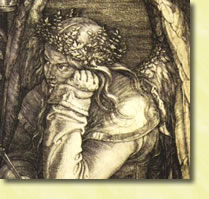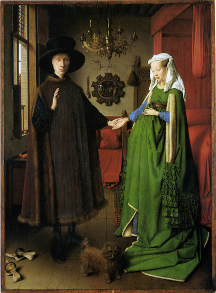The following is a response to some (not recent) criticisms of my argument against the “Catholic” position that women cannot be ordained because only a male priest can represent Christ. To get to my actual response, you’ll need to read past the list of argumentative propositions.
 In the most recent post in my series on women’s ordination, I addressed the definitive new Catholic argument against women’s ordination, which can be summarized as follows:
In the most recent post in my series on women’s ordination, I addressed the definitive new Catholic argument against women’s ordination, which can be summarized as follows:
If
(a) the priest represents Christ in celebrating the eucharist (acts in persona Christ),
then
(b) the priest must be male
because
(c) Jesus Christ is male
and
(d) only a male priest can represent a male Christ.
Or, conversely
(di) a woman priest cannot represent a male Christ.
However
(ai) the priest does represent Christ in celebrating the eucharist (acts in persona Christi);
Therefore
(dii) a woman cannot be a priest.
Note that in order for the argument to work, each one of the above propositions must be true. However:
If
(a) it is not the case that a priest exclusively or necessarily represents Christ in celebrating the eucharist
or
(d) it is not the case that only a male priest can represent Jesus Christ
because
(c) what is important in representing Christ is something besides his masculinity;
then
(dii) it does not follow that a woman cannot be a priest.
My response to the new Catholic argument can be summarized as follows:
(a) the priest does not necessarily or at least exclusively represent Christ in celebrating the eucharist
because
(ai) on the Eastern model (which has increasingly been adopted in recent ecumenical discussion and revised eucharistic rites), the priest represents the church and so acts in persona ecclesiae.
However if
(ai) the priest represents the church
then either
(b) the priest must be female
because
(c) as the bride of Christ, the church is feminine
and
(d) only a female priest can represent the female bride of Christ;
Or, conversely
(di) a male priest cannot represent a female church.
Alternatively, if
(di) it is possible for a male priest to represent the female bride of Christ
then
(dii) it must be equally possible for a female priest to represent a male Christ
because
(ci) what is important about representing either Christ or the church must be something besides the sexual identity of the priest
or else
(di) is false.
Or, if sexual identity is still crucial, then
(diii) both men and women should be ordained
because,
(div) insofar as the priest represents both Christ and the church, men best represent the male Christ and women best represent the female bride of Christ.
As the argument stands, it is valid. (more…)






